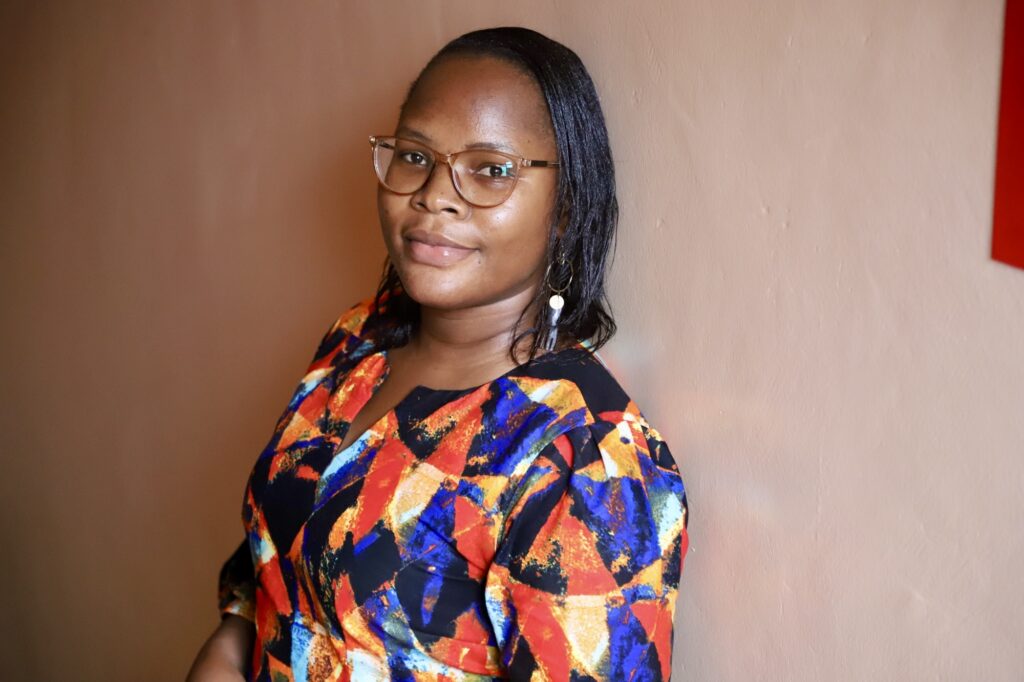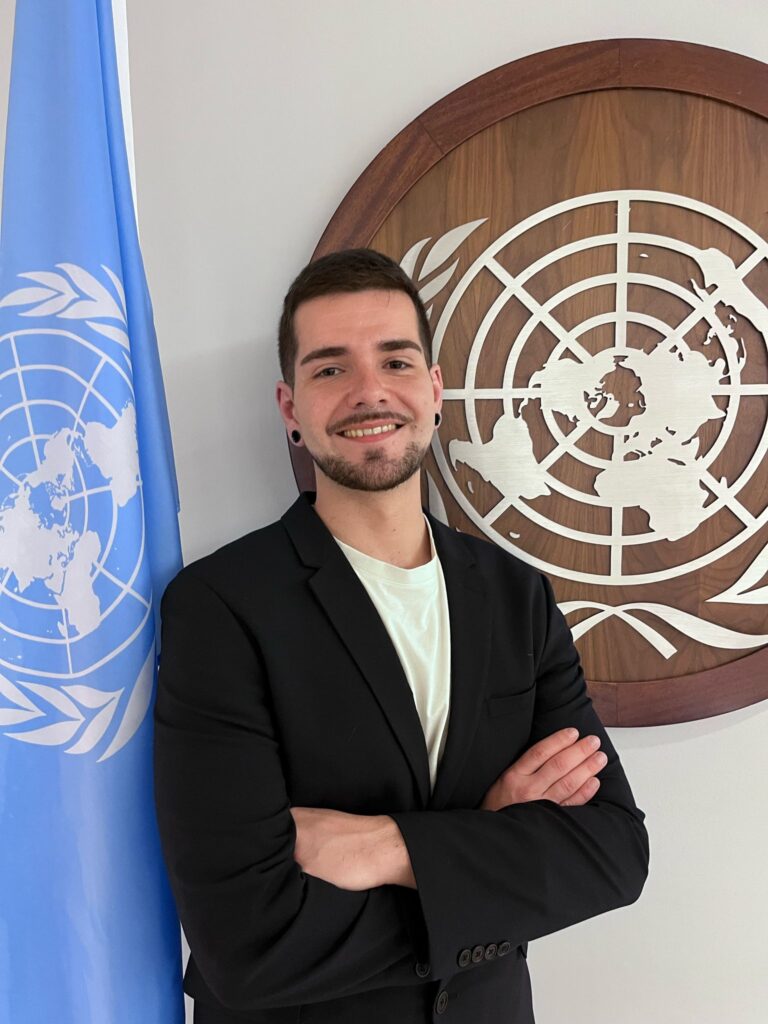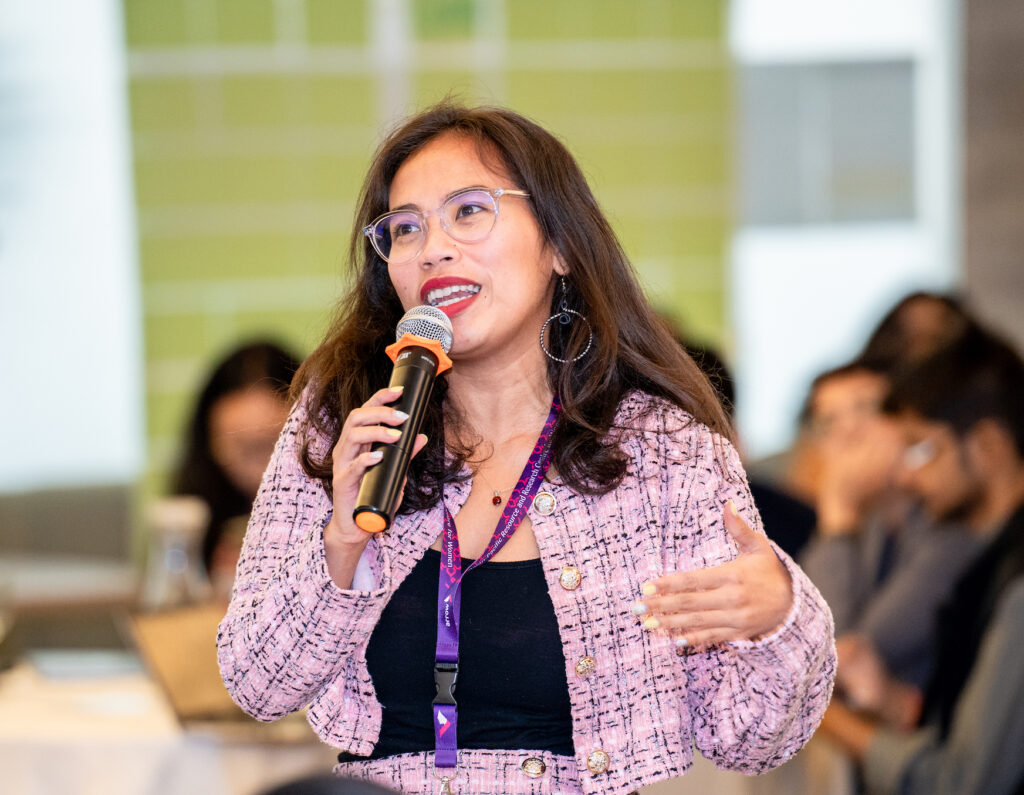Navigating the Storm: Youth SRHR in a Challenging World
12th August 2025
Young people are at the forefront of driving change. With persistent and new challenges impacting their sexual and reproductive health and rights (SRHR), they are navigating the storm in innovative and impactful ways. This International Youth Day, we’re speaking with three members of SheDecides Youth Advisory Panel – David, Dina and Joweri - about what it will take to realise meaningful progress for youth SRHR.
Joweri, you’re an intersectional feminist committed to addressing human rights issues: how have you seen young people’s access to SRHR evolve across different global contexts?

Youth Coalition
Recurring adverse contexts continue to undermine access to essential SRHR information and services for young people and adolescents. Humanitarian catastrophes, such as the ongoing genocide in Gaza and militarisation and armed conflicts in Sudan and the Democratic Republic of Congo, have led to loss of lives, acute hunger and the destruction of infrastructures such as schools and health facilities. They have disrupted access to essential services including education, health, food, clean water and sanitation, access to menstrual products, and people’s livelihoods which are enablers to young people’s wellbeing.
We are seeing attacks on young people’s civic and political rights,especially across Europe and America, for engaging in Palestine solidarity peaceful protests. We can’t talk about socio-economic rights, including on bodily autonomy ,integrity and SRHR, without acknowledging the interdependence with civil and political rights – such as the right to freedom of liberty, life, privacy, self determination, non-discrimination, freedom from torture, inhumane and degrading treatment.
The abrupt closure of USAID and funding cuts by Global North countries has greatly impacted gender equality and SRHR programming. This includes HIV prevention, treatment and care programs, access to contraceptives, and comprehensive sexuality education programs for young people. This is particularly true in the majority world, most of which continue to inherit colonial health systems and structures.
Backlash from anti-rights groups and right-wing conservatism has led to civic space shrinking and funding cuts. Attacks on adolescents and young people’s SRHR include driving anti-comprehensive sexuality education narratives, pushing dis- and misinformation, and lobbying governments to halt or water down comprehensive sexuality education (CSE). We see the grooming of young people into anti-rights rhetoric and anti-CSE protests, such as in Canada and the Netherlands. Anti-rights groups have also influenced the passing of draconian anti-LGBTIQ+ laws in some African countries like Uganda and plans to do so in Ghana and Kenya.
Globally, climate-induced disasters continue to exacerbate poor SRHR outcomes for young people. In turn, leading to transactional sex, sexual violence, early and forced child marriages, disruptions in access to education, including CSE and disruption to access to services (contraceptives, maternal health, HIV and STI/STDs prevention, treatment and care). Moreover, studies show the effects on the mental health of adolescents and young people in Bangladesh, Guatemala and Nigeria.
All in all, there is an urgent need to pay attention to these intersecting crises and contexts of political, economic, social, and environmental issues to improve adolescents’ and young people’s SRHR outcomes.
David, as an advocate for SRHR – from high-level diplomacy to grassroots mobilizing – how are you seeing young people and movements responding and adapting to ongoing challenges?

International Federation of Medical Students Associations
As Joweri shared, across the globe, young people are facing a double assault: on one side, coordinated attacks against bodily autonomy, comprehensive sexuality education, and LGBTQIA+ rights. On the other hand, shrinking civic spaces and growing risks for those who dare to speak out. This is not an abstract debate; these are daily realities that limit our freedoms, endanger our safety, and try to silence our voices.
Yet, despite these challenges, youth-led organisations are not stepping back. We are stepping forward. We are showing up in our communities, in global spaces, and everywhere in between, often without recognition or protection. We are not waiting for permission to lead; we are already doing it.
Our responses are as diverse as our realities. In some countries, young people are launching community-based SRHR initiatives in environments where simply mentioning sexual and reproductive health is considered dangerous. Others are building digital platforms that bypass censorship to provide accurate, youth-friendly information. In places where formal systems have failed us, we are creating peer-led support networks to ensure no one is left without access to care, information, or solidarity.
We are resisting misinformation with education, not just in classrooms, but in streets, in online forums, in art, and everyday conversations. We are countering censorship with storytelling, making our narratives visible and unerasable. We are creating safe(r) spaces, both online and offline, where healing, learning, and organising can happen despite the risks.
And we are doing all of this while staying deeply connected across movements. Youth-led activism today is increasingly intersectional, grounded in feminist, queer, anti-colonial, and anti-racist values. We understand that our struggles are linked and that defending SRHR also means standing up for climate justice, racial justice, and the dismantling of oppressive systems everywhere.
We are not asking for inclusion as a favour; we are claiming leadership because we are already doing the work. We are not the leaders of tomorrow. We are the leaders of today. What the global system needs now is the courage to follow.
Dina, many know you for your bold activism and digital storytelling on SRHR. What do decision-makers most urgently need to hear on this International Youth Day?

I come from a generation raised between hashtags and humanitarian crises, between global conferences and food insecurity. I come not just as a young person, but as a survivor of sexual violence, as a builder of digital tools for youth in Indonesia, and as someone who has had to fight every step of the way for a seat at the table.
So what message do I need decision-makers to hear right now? Fund youth-led solutions. Not someday, NOW.
Despite the rhetoric of inclusion, less than 1% of international aid is directly invested in youth-led organisations. Those doing the work – designing safer reporting tools, creating sexuality education content, running helplines – are constantly asked to volunteer, show up, and speak on panels. But we rarely have the trust, flexible funding, or protection that makes our work sustainable.
As a survivor, I’ve experienced firsthand how inaccessible SRHR systems can be for young people. That’s why I built Lapor Yuk!, a confidential app that helps Indonesian youth report sexual violence, and Sexdugram, a youth-led digital platform offering culturally sensitive sexuality education. These weren’t passion projects. They were survival tools, created by necessity, sustained without the support we deserve.
Meanwhile, our global context is getting worse, not better: 1 in 5 children live in or flee conflict. In these settings, girls are at higher risk of sexual violence, forced marriage, and losing access to school and reproductive care. And as funding shrinks, programs meant to protect them are often the first to be cut.
And yet we keep going. At YIELD Hub, I’ve seen youth mobilise to co-design feminist funding principles, solve the problem collaboratively through the action learning process (e.g. on Sustainable Financing), lead intergenerational dialogues, and demand real accountability. I’ve watched communities build what governments won’t: survivor-led healing circles, youth mental health spaces, and joyful digital storytelling campaigns that reclaim agency.
We don’t need to be saved. We need to be supported. So to decision-makers, I say:
- Don’t just invite us to panels, give us the budgets.
- Don’t just create short-term grants, invest in our long-term sustainability.
- Don’t just talk about decolonisation, fund it.
When youth and feminist movements have the budgets, we have the solutions. Evidence shows that when youth-led solutions are adequately financed, they deliver innovative, context-specific, and scalable outcomes. Funding these movements is not an act of risk. It is an evidence-based strategy to achieve more equitable and sustainable development.

